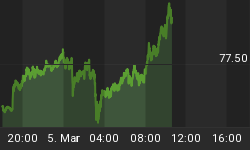To anyone new to socionomics, the stock market is saturated with paradox.
The following is an excerpt from a classic issue of Robert Prechter's Elliott Wave Theorist. For a limited time, you can visit Elliott Wave International to download the rest of the 10-page issue free.
Market Herding
Have you ever watched a dog interact with its owner? The dog repeatedly looks at the owner, taking cues constantly. The owner is the leader, and the dog is a pack animal alert for every cue of what the owner wants it to do. Participants in the stock market are doing something similar. They constantly watch their fellows, alert for every clue of what they will do next. The difference is that there is no leader. The crowd is the perceived leader, but it comprises nothing but followers. When there is no leader to set the course, the herd cues only off itself, making the mood of the herd the only factor directing its actions.
Irony and Paradox
To anyone not versed in socionomics, everything the stock market does is saturated with paradox.
-- When T-bills sported double-digit interest rates in 1979-1984, investors saw no reason to abandon their T-bills for stocks; when T-bill rates were low in the 2000s, investors saw no reason to put up with the "low yield" of T-bills and sought capital gains in stocks. The first period was the greatest stock-buying opportunity in two generations, and the second period was the greatest stock-selling opportunity ever.
-- When long-term bonds yielded 15 percent in 1981, investors were afraid of Treasury bonds even though they were about to embark on the greatest bull market ever; in December 2008, when the Fed pledged to buy T-bonds, rising prices appeared so strongly guaranteed that the Daily Sentiment Index indicated a record 99 percent bulls, just before prices started to fall.
-- When oil was $10.35 a barrel in 1998, no one made a case that the world was running out of black gold; but when it was 7-8 times more expensive, some three dozen books came out arguing that global oil production had peaked, a theme that convinced investors to begin buying oil futures...about a year before the price collapsed 78 percent.
-- In the second half of the 1990s, the idea that stocks would always be the best investment "in the long run" became popular just as a long period of superior returns was coming to an ignoble end. A new study... shows that as of today the S&P has underperformed safe, boring Treasury bonds for the past 40 years, since 1969.
-- Just when nearly everyone -- including world-famous investors -- finally panicked and conceded in February-March 2009 that the financial and economic worlds were in dire shape, the market turned around and shot upward in its fastest rally in 76 years.
And so on. The exogenous-cause model fools investors exquisitely. One reason is that rationalization follows upon mood change. Mood change comes first, and attempts at reasoning come afterward. Socionomists recognize that social mood is primary and has consequences in social action, so we never have to wrestle with paradox. This orientation does not mean that we are always right. It means only that we are not doomed to be chronically wrong.
To succeed in the market, you must learn initially to embrace irony and paradox, at least as humans are unconsciously wired to interpret things. Once you get used to the world of socionomic causality, the irony and paradox melt away, and everything makes perfect sense...
Read the rest of this classic Elliott Wave Theorist issue now, free! You'll get 10 pages of Bob Prechter's unique insights on:
- Why Finance and Macroeconomics Are Not Subsets of Economics
- How Correct Are Economists Who Forecast Macroeconomic Trends?
- The "Beat the Market" Fallacy
- Stock-Picking Geniuses or Just a Bull Market?
- Index Funds and Diversification
- Market Confidence vs. Certainty
- Observations on Corporate Earnings
- Why Being a Bear Doesn't Equal "Doom & Gloom"
- More
Visit Elliott Wave International to download your free 10-page issue.
















